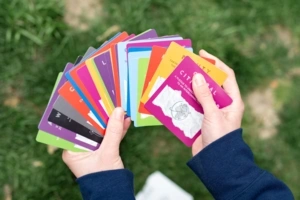Faculty Expert
School’s been back in session for a few months now, and even those teachers who started the year fully recharged are probably beginning to waver at times as we grind toward the holidays.
Educators as a group are highly prone to burnout. According to a 2022 Gallup poll, 44 percent of K-12 teachers say they are “always” or “very often” feeling burned out at work, higher than all other industries in the U.S., including retail, healthcare and government.
That is no surprise to senior fellow, executive coach and researcher Kandi Wiens, a Penn GSE expert on burnout, emotional intelligence and resiliency. She says that while communities can help with emotional, social and financial support, it's still essential for educators to be mindful of self-care and stress management.
Educators spend so much time worrying about students and colleagues that it’s easy to forget to slow down and look inward. However, self-care is critical to preventing burnout.
Here are some suggestions she has to help you recenter and recharge:
1. Evaluate your risk level
Assessing your current job satisfaction and stress is essential to protect yourself from burnout. Awareness is the foundation for combatting burnout. What are your triggers? What makes you more vulnerable to burnout? When do you get overwhelmed? What are your protective patterns? Are you over-focused on what you can’t control? Wiens’ Burnout Risk Assessment can help you identify the degree to which you risk burning out.
2. Boost your self-care
To ward off burnout, focus on activities that help you restore your mental, emotional and physical energy. Walk with a friend, try a home spa treatment, dive into a new book, or experiment with a new recipe. Also, it’s critical to prioritize your sleep. According to a Ball State study, 43 percent of teachers said they slept six hours or less per night, and 64 percent said they were drowsy during the school day.
Exhaustion can quickly lead to burnout, but you can combat that with a good sleep routine. Keep electronics out of your bedroom. Take a bath, meditate, or read before bed. Try to commit to seven to eight hours of sleep a night.
3. Manage stress before it overwhelms you
Education is a purpose-driven occupation; Your work makes a meaningful impact on your students and your community. It’s also a chronically underfunded and high-stress environment, which causes greater vulnerability to burnout.
Keep a journal of your worries and concerns to keep stress in check. Revisit your entries and update them as you resolve issues (or when you don’t!).
Also, don’t be afraid to ask for help. Lean on your teaching team, administrators, school counselors, and your district's mental health resources.
4. Create good habits
We remind our students to develop good study habits, and educators should, too. Try to find joy and renewal when and where you can. Doses of recovery are critical to a positive mental state and a healthy work-life balance.
To achieve that, try to practice frequent recovery. Take a vacation or weekend getaway. Plan gatherings with friends and family and try new activities. Even small things, like eating lunch outside or taking regular breaks away from your computer or classroom, can help.
Regular physical activity and a well-balanced diet are also essential. Schedule a daily walk with a friend, join a gym, or try an on-demand yoga class. These activities will help you manage stress and promote good health.
5. Teach your students well
Like their teachers, many young adults struggle to manage stress and avoid burnout. According to the CDC, about one-third of American high school students report poor mental health. To help, share your practices and help them brainstorm ways to reduce stress. Since the pandemic, more school districts have offered mental health resources, so share that information with your classes.

Kandi Wiens is a Senior Fellow at the Penn Graduate School of Education, where she studies burnout, emotional intelligence and resiliency. Her upcoming book, “Burnout Immunity: How Emotional Intelligence Can Help You Build Resilience and Heal Your Relationship with Work,” will be published by HarperCollins in April 2024.
Subscribe to the Educator's Playbook
Get the latest release of the Educator's Playbook delivered straight to your inbox.
Media Inquiries
Penn GSE Communications is here to help reporters connect with the education experts they need.






